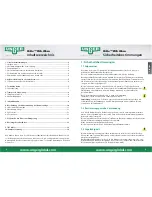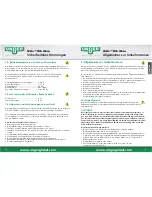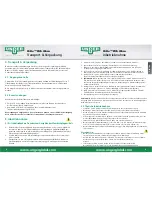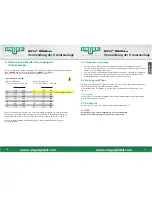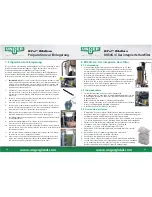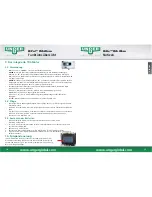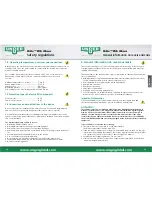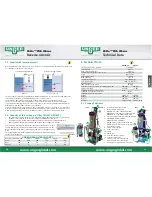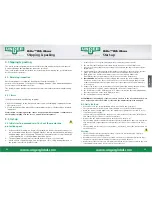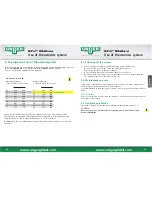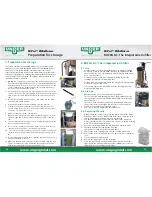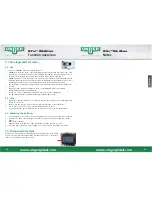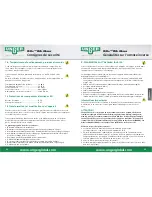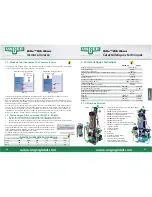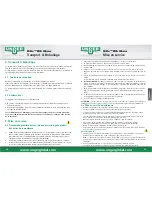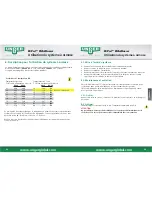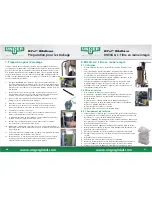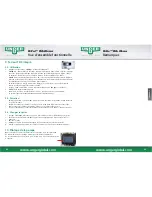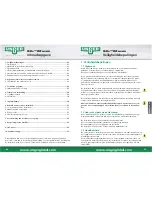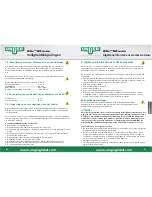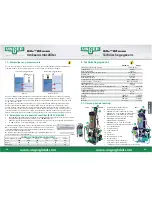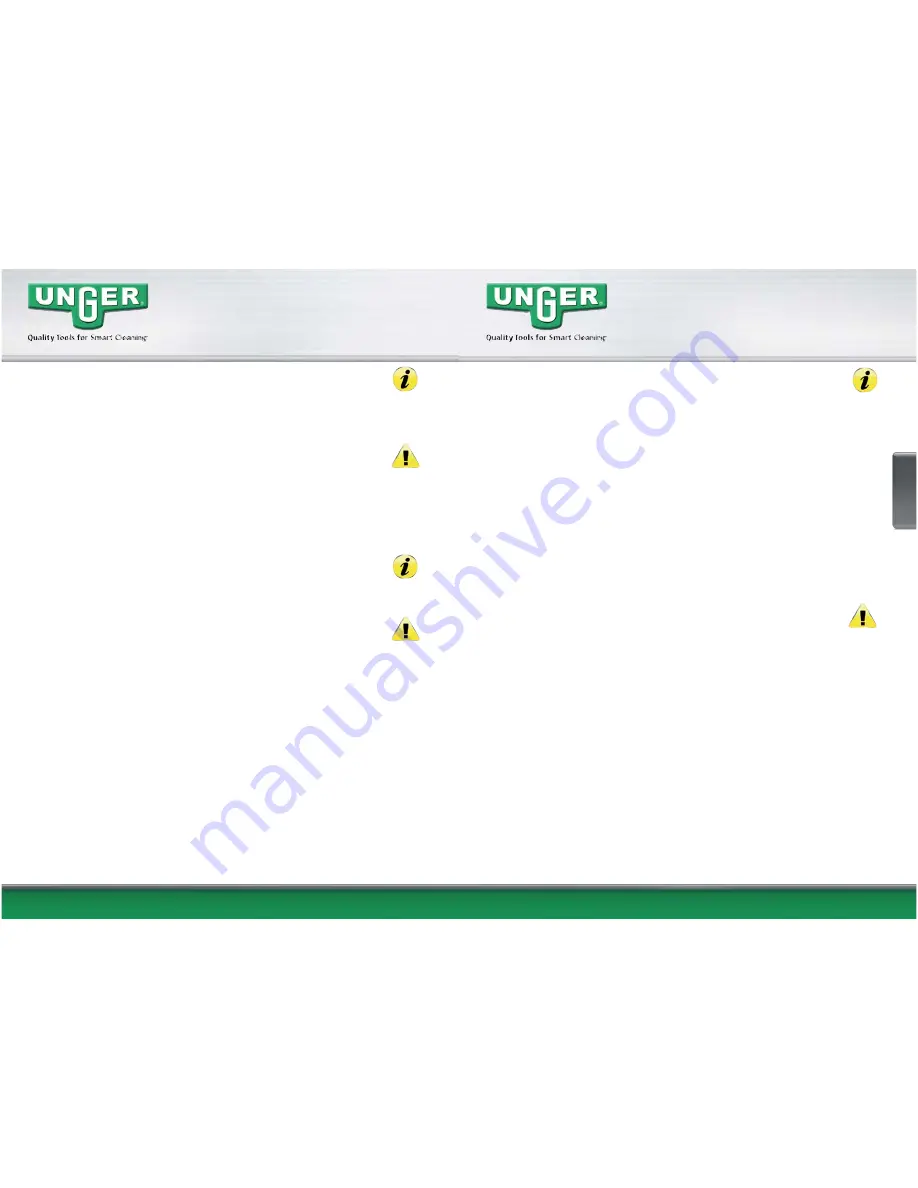
www.ungerglobal.com
Reinigungsgeräte für den Profi
www.ungerglobal.com
www.ungerglobal.com
18
19
ENGLISH
H
I
F
LO
™ RO-M
OBILE
General information on reverse osmosis
2. General information on reverse osmosis
The reverse osmosis process is an eco-friendly, physical technology for desalination
of drinking water without chemicals, for the purpose of generating pure water for
industry and cleaning.
The advantages of the reverse osmosis process compared to other desalination meth-
ods are substantial:
•
Maximum removal of all dissolved and dispersed water constituents (anions and cations
of salts, airborne particles, colloids, organic compounds, etc.).
•
Low operating costs, high use-value, quick amortisation.
•
Minimal pre-treatment.
•
Continuous operation.
•
Small space requirement.
•
High and consistent pure water quality.
•
User-friendly and eco-friendly method, requiring no regeneration of the mem-
brane since no acids or bases are used as in chemical desalination.
Important information
To prevent damage to the system and modules, please thoroughly read and
observe the operating instructions prior to installation and start-up!
ATTENTION!
The fed water must be in compliance with the German Drinking Water Regulation. It
must be completely free of iron-manganese heavy metals (max. 0.05 mg/l manganese,
max. 0.2 ml/l iron); the maximum silicate (SiO2) content may not exceed 20 mg/l. In
addition, the feed water must not contain any barium and strontium. If the water
contains chlorine, an additional activated charcoal pre-fi lter must be used (at RO30G).
The models RO30C and RO60S are already equipped with a carbon pre-fi lter as standard
equipment.
It is essential to also observe the following:
•
The system must be connected to a cold water supply.
The water temperature shall be max. 25°C.
•
If the raw water supply or power supply is interrupted for more than 1 week, the
system must be prepared according to the storage regulations. Another possibility
is to operate the system at least every 7 days for approx. 5 minutes.
•
Preparation for storage regulations, see also item 7.
•
Please make sure fi lters are replaced on a regular basis (pre-fi lters, as well as any
installed activated carbon fi lter).
H
I
F
LO
™ RO-M
OBILE
Safety regulations
1.4. Operating temperatures, pressures and connections
Depending on the composition of the raw water, the treated water can be more or
less aggressive. Thus, the parts coming in contact with the treated water must be
made of suitable material.
This could be plastic material, like for instance PE, PP, PVC, or stainless steel.
When using copper pipes, corrosion cannot be ruled out over the course
of time.
Ambient temperature of system: ................ 5 – 40 °C
Water temperature: .................................... 5 – 25 °C
Inlet pressure: .............................................. 0-6 bar
Operating pressure: ..................................... max. 10 bar
Power supply, to be provided by customer: 230 V / 50 Hz
1.5 Protection types of electric RO components
Electric motor: .............................................. IP 54
Pump control system: .................................. IP 65
1.6 Conversions and modifi cations to the device
Due to safety reasons, unauthorised modifi cations are not allowed. Original parts
and accessories are specifi cally designed for this reverse osmosis system.
Any liability by the manufacturer for damage resulting from modifi cations to the
system or from using parts other than original parts is excluded and results in expira-
tion of the warranty.
The warranty/guaranty expires in case of:
•
Operating and installation errors.
•
Opening/disassembly of housing other than by Unger.
•
Replacing connections and hoses, other than by Unger.
•
Replacing spare parts that are not included in the offi cial Unger spare parts price
list.
•
Performing unauthorised modifi cations to the design.
•
Use of unauthorised chemical additives.
•
Non-compliance with safety regulations (e.g. anti-freeze protection).
•
Inadequate maintenance (1x per year by the authorised dealer or Unger).
•
Non-use of drinking water


